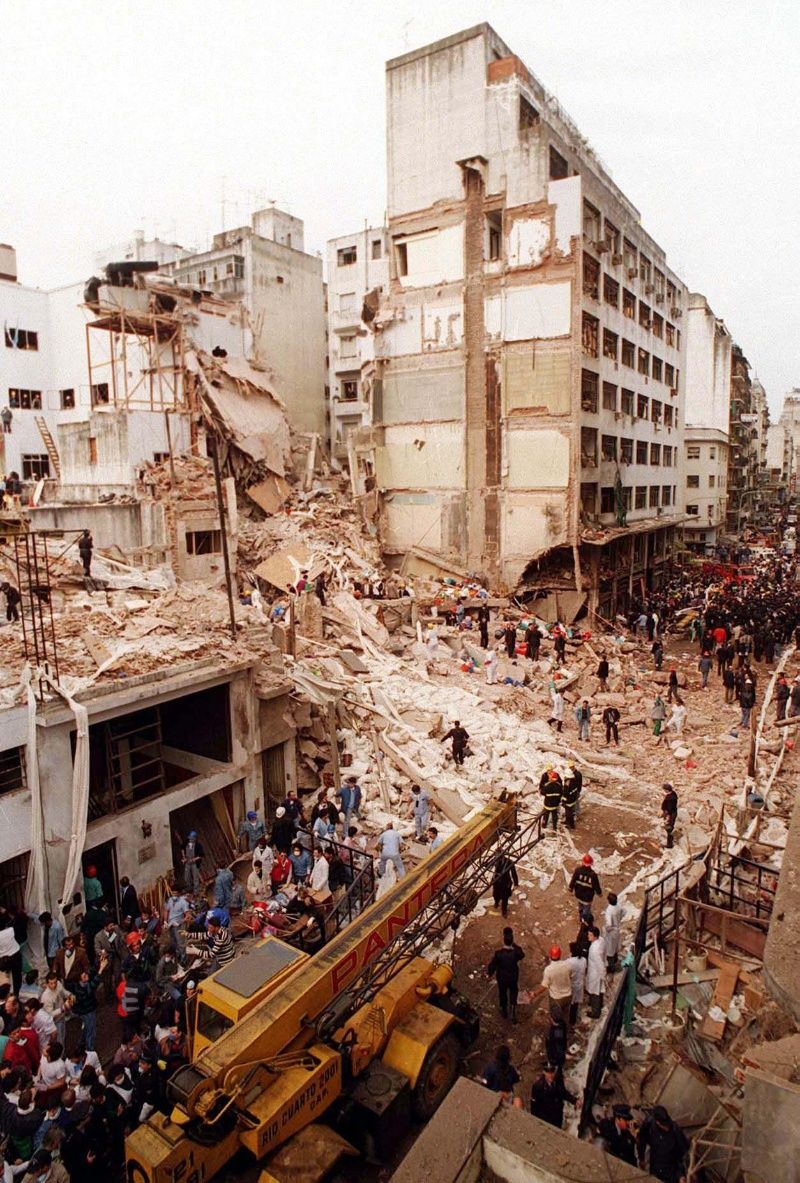Anita Weinberg’s parents always told her she would never have to be called a survivor.
That was a title they had earned during the Holocaust and, by finding new lives in Argentina, they hoped their daughter would never face the anti-Semitism that had scarred them.
Their hope was shattered on the morning of July 18, 1994, when a van loaded with explosives was driven into the lobby of the administrative headquarters of Argentina’s Jewish community in Buenos Aires. The blast that followed killed 85 and injured hundreds more.
It also changed Jewish life in Argentina forever.
Until that terrible morning, Weinstein was director of the community’s documentation and information centre, custodian of the records of years of Jewish history in Argentina. Afterward, like her parents before her, she was forced to shoulder an even greater responsibility to the future.
“Suddenly, I became responsible for remembering the victims and for telling others what happened,” she told a B’nai Brith event marking the 27th anniversary of the attack on Monday.
The bombing of the Asociación Mutual Israelita Argentina (Argentina-Israel Mutual Association or AMIA) building remains the deadliest terrorist attack in Argentina’s modern history. Previous attacks include a 1992 bombing of the Israeli embassy in Buenos Aires and a 1919 pogrom that claimed 700 lives.
Weinstein has told her story of the bombing many times over the years, including at previous B’nai Brith memorials. Her office was actually in a building a few blocks away, but that morning she had come in for a meeting and had just reached an office in the rear of the building when the bomb went off.
No one has ever faced prosecution for the attack.
At the time it was widely believed, but never officially proven, the attack was carried out by Iranian terrorists linked to Argentina’s then president, Carlos Saul Menem.
The attack was investigated in 2015 by federal prosecutor Alberto Nisman, but on the day he was to appear before Argentina’s congress to present evidence implicating Menem he suddenly died. Officially, his death has been ruled as suicide.
For Karen Weinstein, Anita’s daughter, that incident tore open 20-year-old wounds in the community.
“Twenty years later we felt the bombing again,” she said. “We felt insecure and afraid again.”
Eduardo Kohn, B’nai Brith’s director of Latin American Affairs, told the event that story is widely disbelieved.
“The killing of Alberto Nisman was a clear demonstration of the long arm of Iran,” he said. “I hope that one day his family will know who really killed him.”
Argentina’s current government continues to search for the truth.
“This was not just an attack against the Jewish community, it was an attack against Argentina,” said Josefina Martinez Gramaglia, the country’s ambassador to Canada.
Anti-terrorism expert Matthew Levitt, of the Washington Institute for Near East Studies, told the event the suspicion of a link between Iran-backed Hezbollah terrorists and Argentine officials is backed by serious evidence.
Hezbollah, he said, has long used South America as a “cash cow” to finance its global efforts to destroy Israel. A favorite tool is the use of Argentina’s casinos to launder money.
Links with friendly governments, he added, are seen as another way to export the Islamic revolution backed by Iran’s leaders.
“Exporting their revolution is something that is ingrained with them,” he said. “To them, the use of force is just another tool in their kit, no more or less valuable than any other tool.”
Levitt warned the export of violence that inflicted mass murder on the Jewish community of Argentina could just as easily strike Canada.
“Hezbollah has a lot of interest in Canada,” he said, adding one proof of that claim is the 2019 arrest of an Iranian Hezbollah sleeper agent named Ali Kourani. He was convicted of terrorism charges in the United States. It was alleged he visited Toronto’s Pearson Airport several times to reconnoiter its security.
The AMIA attack gave rise to a mania for security measures in Jewish communities around the world. As useful as those are, Levitt said, the only real security for the world is for countries to directly face the terrorism of the Iranian government.
Economic sanctions are one tool, he said, but while they hurt the country’s citizens, they have little effect on the government.
“By themselves sanctions will not get us where we need to be. Our governments have to start treating Iran like the rogue nation it is,” he said.
One way of accomplishing that goal, he said, is a campaign by B’nai Brith to have the Iranian Revolutionary Guard Corps listed as a terrorist organization in Canada.
Hear more from The CJN Daily podcast: Still demanding justice: 27 years since Argentina’s largest unsolved terror attack
